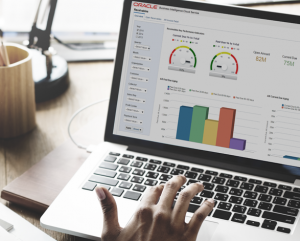Editor’s Note: This guest blog post comes courtesy of Gail Cole with Avalara.
Ten states started requiring out-of-state sellers to collect and remit sales tax on October 1, 2018, a day that may go down in sales tax history as “Nexus Monday,”
Guide to Oracle Cloud: 5 Steps to Ensure a Successful Move to the Cloud
Explore key considerations, integrating the cloud with legacy applications and challenges of current cloud implementations.
Sales tax nexus is the connection between a business and a state that enables a state to impose a sales and use tax collection obligation on a business. Historically, it’s been based on physical presence. However, on June 21, 2018, the Supreme Court of the United States overruled the physical presence rule in South Dakota v. Wayfair, Inc. States now have the authority to tax sales by businesses with no physical presence in the state (remote sellers).
Before they can do so, each state must adopt a policy or law authorizing it to tax remote sales. Eager to increase their sales and use tax collections, 28 states have already done so; in 10 of these, the news laws took effect on October 1, 2018.
To be prudent, most states are emulating the South Dakota law that led to the repeal of the physical presence rule. South Dakota adopted economic nexus, under which a tax collection obligation is established by a remote seller’s economic activity in the state. Remote sellers have to collect and remit South Dakota sales and use tax if they have more than $100,000 in gross sales or 200 or more transactions for delivery into the state in the previous or current calendar year.
Businesses that sell into multiple states would be wise to take note of Nexus Monday and the trend it signifies. All but five states in the country (Alaska, Delaware, Montana, New Hampshire, and Oregon) impose a general sales and use tax, and most of these have been actively trying to increase remote sales tax collections for years. The decision in South Dakota v. Wayfair, Inc. grants them the authority to do so. Economic nexus gives them the means.
To learn more about economic nexus and the states that tax remote sales, check out this blog from Avalara.

